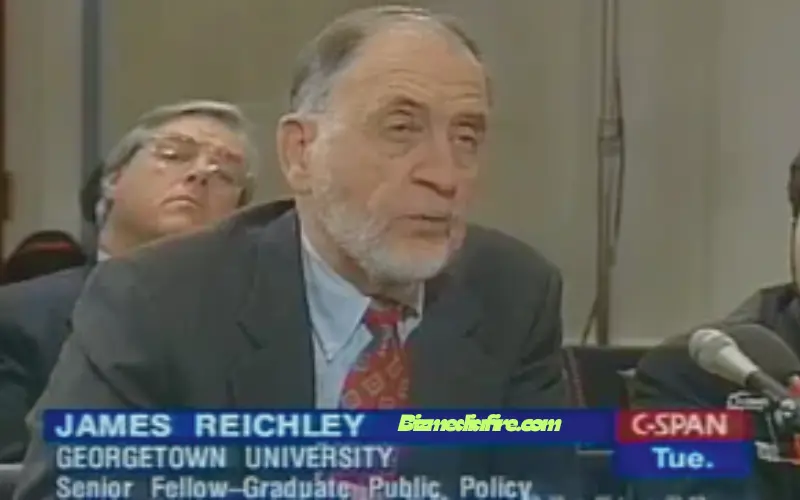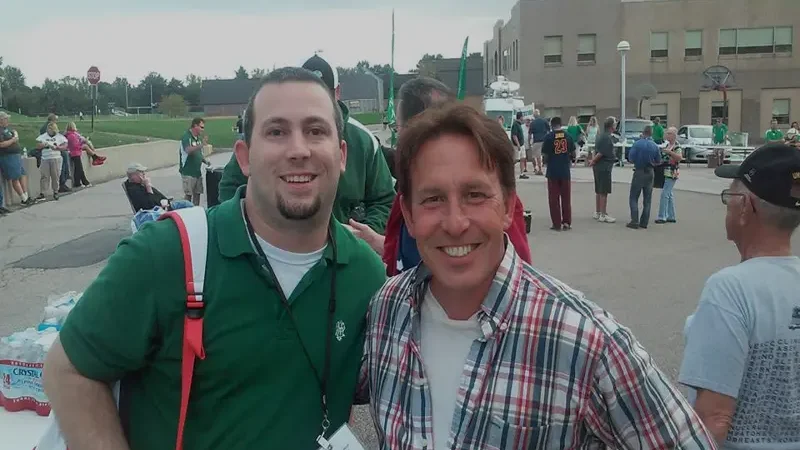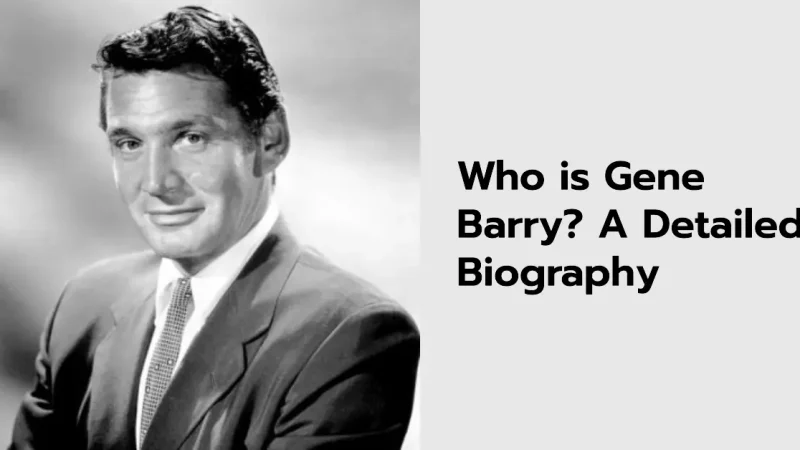A James Reichley Biography

James Reichley was a towering figure in American political thought, journalism, and academia. His contributions to the understanding of democracy and the American political system have left an indelible mark on both scholarly and public discourse. This biography takes you through the life of James Reichley, from his early years and education to his prolific career, and ultimately his enduring legacy.
Early Life and Education
Born in 1926, James Reichley grew up during a transformative period in American history. The Great Depression and World War II were significant events that shaped his worldview from a young age. Raised in a family that valued education and civic responsibility, Reichley developed an early interest in politics and history.
Reichley’s academic journey began at Duke University, where he earned his undergraduate degree. He later pursued graduate studies at Harvard University, further honing his analytical skills and deepening his understanding of political systems. His time at Harvard, under the mentorship of prominent political theorists, played a crucial role in shaping his intellectual trajectory.
Professional Beginnings
Reichley’s career began in journalism, where he quickly established himself as a sharp political commentator. He joined Time Magazine in the early 1950s, a period when political journalism was undergoing significant changes. Reichley’s early articles often reflected his deep understanding of the political landscape, offering readers insightful analysis on current events.
During these years, Reichley was not just a passive observer but an active participant in the political discourse of the time. His early experiences in journalism allowed him to witness firsthand the inner workings of the American political system, which would later inform his academic work.
Career in Journalism
At Time Magazine, Reichley covered major political events, providing readers with in-depth analyses of elections, policy debates, and the dynamics of power in Washington. His ability to distill complex political issues into accessible narratives made him a respected voice in political journalism.
Reichley’s journalism was characterized by a commitment to objectivity and a deep respect for the democratic process. He believed that journalism had a critical role to play in informing the public and holding those in power accountable. This belief guided his work and earned him a reputation as a principled journalist.
Transition to Academia
In the 1970s, Reichley transitioned from journalism to academia, a move that allowed him to explore political issues in greater depth. He joined Georgetown University as a professor of government, where he taught courses on American political thought, the two-party system, and democracy.
Reichley’s academic career was marked by a dedication to teaching and mentoring. He encouraged his students to think critically about political systems and to engage with ideas that challenged conventional wisdom. His classes were known for their rigorous intellectual standards and lively discussions.
Major Works and Publications
James Reichley authored several influential books that have become essential reading for students of American politics. His most notable work, The Life of the Parties: A History of American Political Parties, offers a comprehensive analysis of the evolution of the U.S. party system. In this book, Reichley argues that political parties play a crucial role in sustaining democracy by providing a structure for political debate and competition.
Another significant publication is Religion in American Public Life, where Reichley explores the complex relationship between religion and politics in the United States. His nuanced approach to this subject reflected his belief that understanding the interplay between religion and politics was essential to grasping the broader dynamics of American public life.
Political Philosophy
Reichley’s political philosophy was grounded in a deep belief in democracy and the American political system. He saw the two-party system as essential to the functioning of democracy, providing stability and a means for resolving conflicts. However, he was also critical of the ways in which the parties sometimes failed to represent the interests of the public.
Reichley’s work often focused on the challenges facing American democracy, including polarization and the erosion of civic engagement. He believed that a healthy democracy required active participation from its citizens and that political institutions needed to be responsive to the needs of the people.
Involvement in Political Think Tanks
Beyond his academic work, Reichley was actively involved in political think tanks, most notably the Brookings Institution. At Brookings, he collaborated with other scholars and policymakers to address pressing political issues. His work in these institutions further solidified his reputation as a thought leader in American politics.
Reichley’s influence extended beyond the academic world into the realm of public policy. His analyses and recommendations often informed debates on political reform and governance. He was a sought-after voice in discussions about the future of American democracy.
Consulting and Advisory Roles
Reichley’s expertise in political analysis made him a valuable consultant and advisor to various political campaigns and government agencies. He was often called upon to provide strategic advice during elections, drawing on his deep understanding of the political landscape.
His advisory roles allowed him to bridge the gap between academia and practical politics. Reichley’s insights helped shape campaign strategies and public policy initiatives, demonstrating his ability to apply theoretical knowledge to real-world challenges.
Teaching Legacy
James Reichley’s influence on his students is perhaps one of his most enduring legacies. At Georgetown University, he mentored a generation of political scientists, journalists, and policymakers. His emphasis on critical thinking and ethical responsibility left a lasting impact on those who studied under him.
Many of Reichley’s former students have gone on to prominent careers in academia, journalism, and government, carrying forward the lessons they learned from him. His teaching legacy is a testament to his commitment to nurturing the next generation of political thinkers.
Awards and Recognitions
Throughout his career, James Reichley received numerous awards and recognitions for his contributions to journalism and political science. These accolades reflected the high esteem in which he was held by his peers and the broader intellectual community.
Among his honors were awards for journalistic excellence and recognition from academic institutions for his scholarly work. These awards underscored the significant impact of his contributions to both fields.
Personal Life
Despite his professional achievements, James Reichley remained grounded in his personal life. He was known for his humility and his dedication to his family. Reichley balanced his career with a rich personal life, and those who knew him often remarked on his kindness and generosity.
Reichley’s personal experiences and relationships undoubtedly influenced his work. His deep sense of responsibility to both his family and his country shaped his approach to politics and journalism.
Later Years and Retirement
Even after retiring from full-time academia, Reichley remained active in the political and academic communities. He continued to write, lecture, and participate in discussions on American democracy. Those who sought to understand the evolving political landscape valued his insights.
Reichley’s later years were marked by reflection on his long and distinguished career. He remained optimistic about the future of American democracy, even as he acknowledged the challenges it faced.
Legacy and Influence
James Reichley’s legacy is one of profound influence on American political thought. His work has shaped how scholars, journalists, and policymakers understand the role of political parties, religion, and democracy in the United States.
Reichley’s contributions continue to resonate in discussions about the health and future of American democracy. His commitment to principled journalism, rigorous scholarship, and civic engagement serves as an enduring example for future generations.
Conclusion
James Reichley was a man of deep intellect and profound influence. His contributions to journalism, academia, and political thought have left a lasting legacy that continues to shape our understanding of American democracy. Through his work, Reichley has ensured that his voice will remain a vital part of the conversation about politics and governance for years to come.
FAQs
What were James Reichley’s most influential works?
James Reichley’s most influential works include The Life of the Parties: A History of American Political Parties and Religion in American Public Life. These books have become essential reading for anyone studying American politics.
How did Reichley’s journalism shape political discourse?
Reichley’s journalism at Time Magazine provided in-depth analysis of political events, helping to inform public understanding and debate during a critical period in American history.
What was Reichley’s stance on the two-party system?
Reichley believed that the two-party system was essential to American democracy, providing a framework for political debate and conflict resolution, though he was also critical of its shortcomings.
How did Reichley influence his students and colleagues?
Through his teaching at Georgetown University, Reichley influenced a generation of political scholars and practitioners, instilling in them a commitment to critical thinking and ethical responsibility.
What is Reichley’s legacy in modern American politics?
James Reichley’s legacy is his profound influence on the understanding of American democracy. His work continues to shape discussions about political parties, democracy, and governance in the United States.






